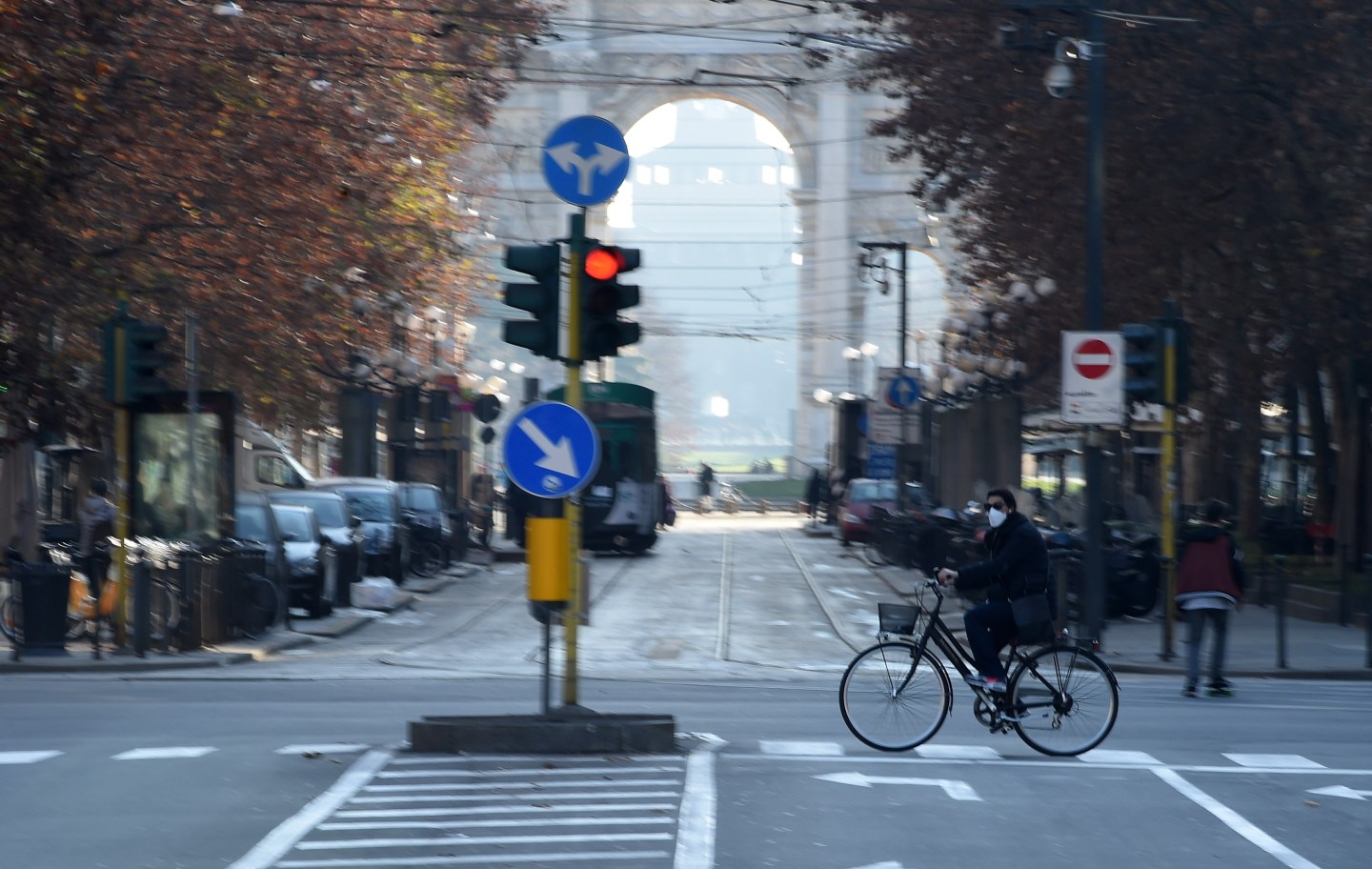One of the E.U.’s most polluted cities is working to change its commuters’ habits.
Milan is considering implementing a program that would compensate people who bike to work, Fast Company reports. It’s consistently ranked as one of the most polluted cities in the E.U. and even had to ban cars temporarily when it had unhealthy smog levels for 30 straight days in December.
The smog has a difficult time getting aired out considering Milan is in a valley, and it’s made even worse when the climate is dry and warm, as it was this winter—an issue that will likely only intensify as climate change progresses. Milan wants to give money directly to those who commute to work by bike, or “give them some other sustainable-mobility incentive,” Pierfrancesco Maran, Milan’s mobility councillor, told Fast Company.
France tested a similar program in 2014 that didn’t quite work. Out of the 8,000 participants, only around 400 people actually chose to bike to work rather than drive.
Milan has been making its city more bike-friendly in recent years, and it appears to be working. However, getting people to cycle to work is just a small part of a larger sustainability initiative. The city has increased the number of bike lanes by 50%, more than doubled to amount of bike-sharing stations, given drivers a push by making them pay a congestion fee, and it’s now working to expand its car-free zone. Usage of public transportation has gone up by 20% in the past four years.
“Something is changing in the behavior of our citizens,” Maran said. “We want to help change it faster.”












